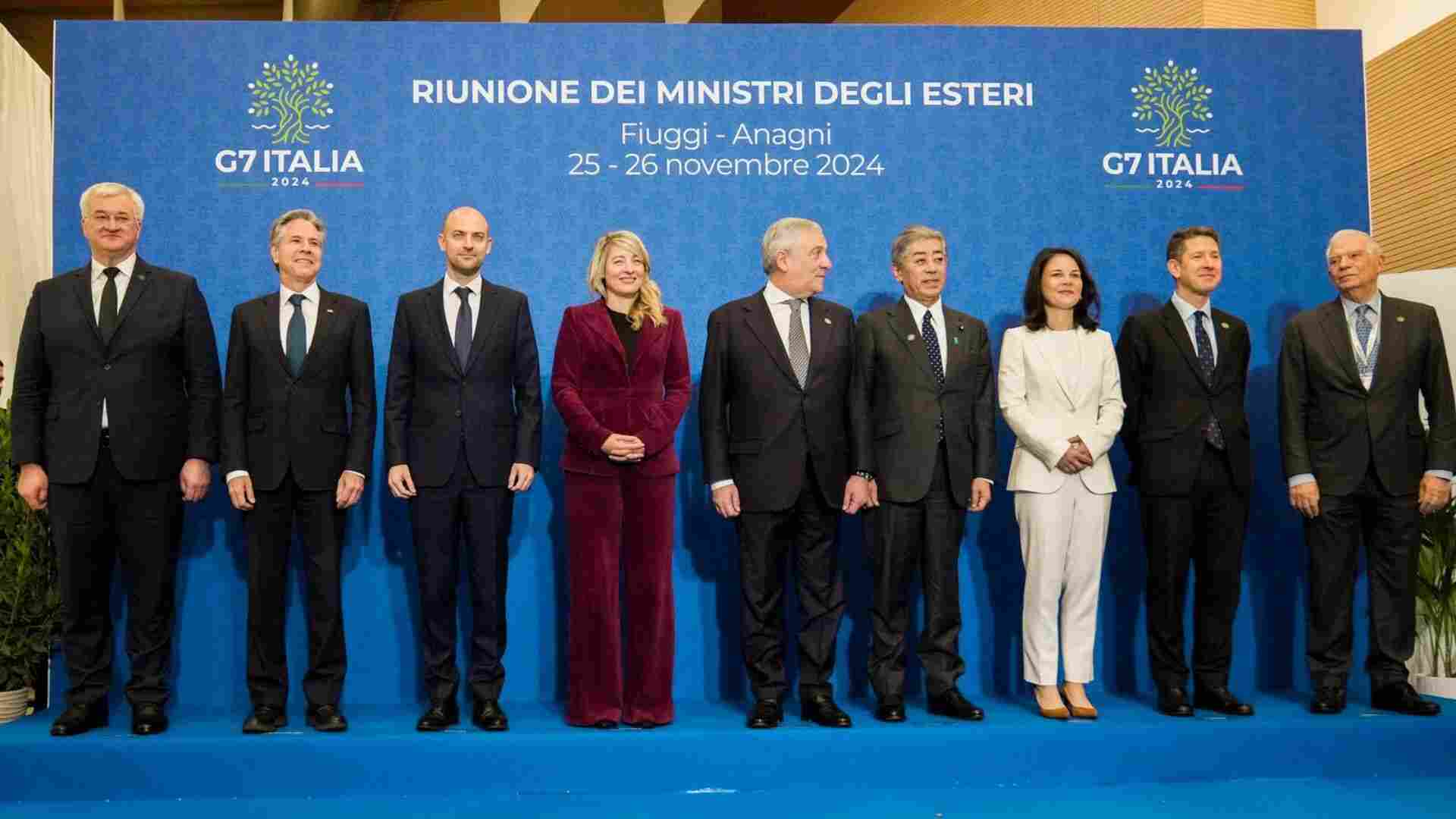The foreign ministers of the world’s leading industrialized nations expressed strong support on Tuesday for an immediate ceasefire between Israel and Hezbollah, the Lebanese militant group. However, they avoided directly addressing the recent arrest warrants issued by the International Criminal Court (ICC) for Israeli Prime Minister Benjamin Netanyahu and his former defense minister, Yoav Gallant, over alleged war crimes in Gaza.
During the two-day summit near Rome, the Group of Seven (G7) nations refrained from mentioning the ICC warrants explicitly in their final statement. The court had charged Netanyahu and Gallant with “using starvation as a method of warfare” by restricting humanitarian aid and intentionally targeting civilians in Gaza, accusations that Israeli officials have denied. Italy had included the ICC warrants in the official agenda, despite divided opinions among members. While the U.S., a non-member of the ICC, called the warrants “outrageous,” other G7 members, being signatories, are obligated to respect the court’s rulings.
The ministers reaffirmed their commitment to international law, stating that Israel must “fully comply with its obligations under international law in all circumstances, including international humanitarian law.” They emphasized, “There can be no equivalence between the terrorist group Hamas and the state of Israel.”
The summit, the last under the Biden administration, was largely focused on the wars in Gaza and Lebanon. U.S. Secretary of State Antony Blinken expressed cautious optimism about a possible ceasefire between Israel and Hezbollah, saying, “We are tracking this very closely. I hope and believe we can get this over the finish line.”
Must Read: Inside the Israel-Hezbollah Ceasefire Deal: Can It Finally Bring Peace to Lebanon?
Meanwhile, Netanyahu’s security Cabinet was convening to discuss a proposed ceasefire, with a key sticking point being Israel’s demand to reserve the right to respond to any violations by Hezbollah under the deal.
The G7 ministers were joined by foreign ministers from Saudi Arabia, Jordan, Egypt, Qatar, and the United Arab Emirates, collectively known as the Arab Quintet. Josep Borrell, the EU’s foreign policy chief, urged Israel to accept the U.S.-French-brokered ceasefire, insisting that its security concerns had been addressed. Speaking at the summit’s sidelines, Borrell warned, “Lebanon will fall apart” if a ceasefire is not implemented and called for greater international pressure on Israel to counter opposition from hardliners within its government.
The ongoing conflict, which erupted following a Hamas attack in Israel on October 7, 2023, has escalated into a full-scale war between Israel and Hezbollah. The violence has resulted in over 3,500 deaths and 15,000 injuries in Lebanon, according to the Lebanese Health Ministry. On the Israeli side, about 90 soldiers and nearly 50 civilians have been killed by rockets, drones, and ground fighting in Lebanon.
Must Read: US Says Israel-Hezbollah Ceasefire Deal Near; Security Cabinet To Review Proposal
In addition to the Mideast crisis, the G7 meeting also addressed the situation in Ukraine. Ukrainian Foreign Minister Andrii Sybiha briefed the ministers on Russia’s intensified attacks on Ukraine’s energy infrastructure, including the use of an experimental hypersonic ballistic missile. Russia described the strike as retaliation for Kyiv’s deployment of longer-range Western missiles.
In their final communique, the G7 ministers condemned Russia’s use of North Korean troops in Ukraine and its “irresponsible and threatening nuclear rhetoric.” They reiterated their unwavering support for Ukraine’s territorial integrity and sovereignty. Blinken, reflecting on his final G7 meeting as Secretary of State, stated, “Our countries are standing together, along with other partners, to deal with the ongoing Russian aggression against Ukraine. We’re standing together to deal with some of the challenges posed by China. We’re standing together in looking to bring a sustainable, lasting peace in the Middle East.”
Also Read: Russia Expels British Diplomat, Accuses Him Of Espionage Amid Tensions With UK





















